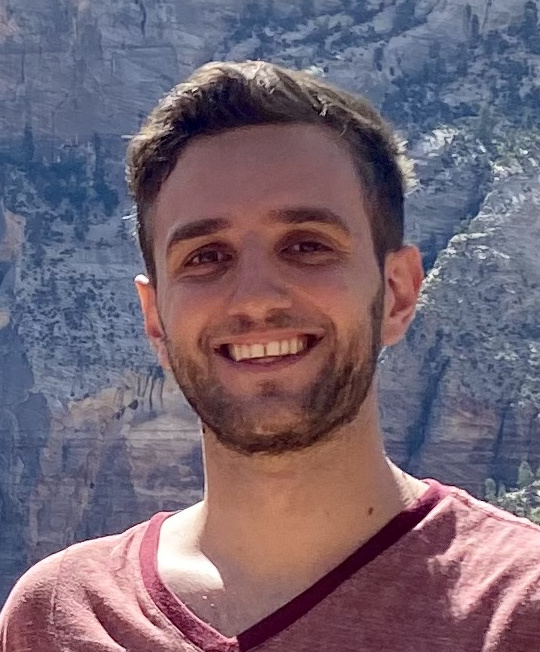USCMS Researcher: Oz Amram

Postdoc dates: Sep 2022 - Sep 2024
Home Institution: Fermilab
Project: AI Denoising to Accelerate Detector Simulation
Develop fast and accurate simulation of highly granular calorimeters using machine learning models. Use a 'denoising' approach to upscale existing physics-based fast simulation to achieve better quality at similar speeds.More information: My project proposal, My project final report
Mentors:
-
Kevin Pedro (Fermilab)
- 8 Nov 2022 - "Machine Learning Models for Calorimeter Simulation", Oz Amram, HL-LHC R&D Initiative Meeting
- 11 May 2023 - "Fast and Accurate Calorimeter Simulation with Diffusion Models", Oz Amram, Computing in High Energy Physics (CHEP) 2023
- 30 May 2023 - "Denoising Diffusion Models for High Fidelity Calorimeter Simulation", Oz Amram, CaloChallenge Workshop
Current Status
2024 Q2
- Progress
- Completed full data pipeline for training on CMS HGCal simulation.
- Trained first models to reproduce single photon HGCalEE showers in a limited energy range at fixed rapidity and angle. Captured basic structure of the shower but modeling of some features can be improved
- Developed first version of the model which uses existing fastsim as an input to reduce number of diffusion steps needed for high quality generation by using conditional distillation technique
- Next steps
- Generate a larger set of CMS HGCal simulations covering a larger phase space. Use these simulations to train the model at a larger scale.
- Improve the modeling of some HGCal shower features (energy per layer, radial spread of the shower, occupancy)
- Develop testing suite to quantitatively validate performance of trained model
- Further optimize usage of existing fast sim input to improve speedup gains
2024 Q1
- Progress
- Began development of pipeline for training on CMS HGCal simulation, including handling complicated geometry.
- Began development of hybrid model which incorporates existing fast simulation to reduce time needed for generation of high quality showers
- Next steps
- Complete HGCal simulation pipeline, train first models.
- Complete developement of hybrid model. Test speed up gains from its usage
2023 and prior
- Progress
- Have successfully developed denoising diffusion model for calorimeter simulation that achieves state of the art results on public datasets.
- Paper published in Phys.Rev.D 108 (2023)
- Next steps
- Next steps are to explore different methods of improving the generation speed, including diffusing from existing fast simulation rather than pure noise.
- Following this, we will apply the model to simulate the current CMS calorimeter and eventually the HGCal design.
Contact me: